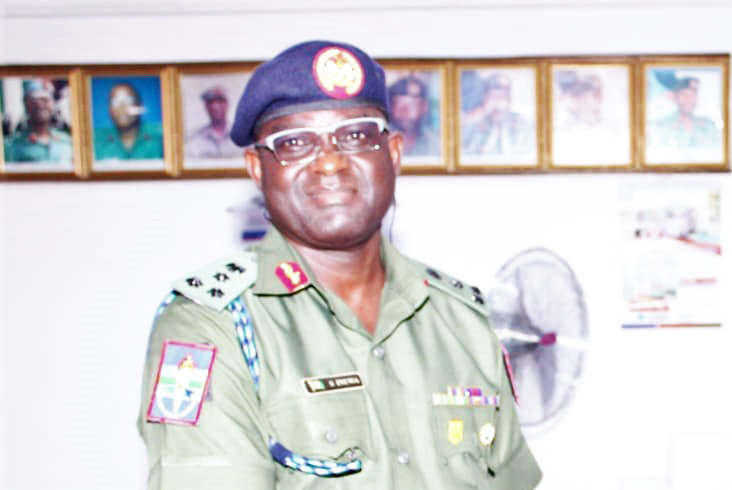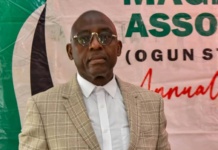
By Dr Kelvin Anoh – Manchester, United Kingdom, is the home to one of the foreign branches of the Nigerian Society of Engineers (NSE).
The society brings together Nigerian engineers who reside within Manchester and its environs up to Europe. The chairman of the branch is Engr. Patrick Obidoyin, FNSE, an expert in Telecommunications Engineering. There are two other branches in the UK, namely, Glasgow and London.
On the other hand, the NSE Manchester branch is a light bearer in educating fellow engineers and the interested public on the prevailing problems of our country, Nigeria. It explores the professional contributions of seasoned international professionals to Nigerian issues and how the society could help solve these problems. The NSE Manchester branch hosts a monthly technical session led by Engr. Dr Kelvin Anoh, the Technical Secretary of the branch and an expert in Sustainable Smart Energy Cities and Communities. During the sessions, experts from relevant fields of themes of each quarter are invited to suggest ways of solving the problem identified by the technical team of the NSE branch for Nigeria.
The theme for the first quarter of 2024 is “Security Drivers for Sustainable National Development”, and the guest speaker for February’s Technical Session was a serving senior officer in the Nigerian Army, Brig. Gen. Solomon Inuwa, PhD. He spoke on “Sustainable National Development: Implications for Our Now and Future Security”. The session attracted a broad community of interest from engineering and non-engineering backgrounds within and outside the United Kingdom. In attendance were the senior members and officials of the NSE, Abuja and other local branches in Nigeria. Notable persons include the Patron of the branch, Engr. Ademola Olorunfemi, Engr. Patrick Obidoyin, Engr. Adediran Halimat Sope Christina from NSE Bwari branch in Abuja, Engr. Rasheed Babalola, Engr. Ndifon Agbiji, FNSE, an NSE Exco member of the Professional Development Board, Engr. Dr Kennedy C. Okafor of the Federal University of Technology Owerri, Engr. Mohammed Jiya of NSE Zaria Branch, etc.
Speaking at the event in Manchester, Brig. Gen. Inuwa of the Nigerian Army emphasised the importance of sustainable exploitation of natural resources in Nigeria as its unsustainable harvesting spikes tensions and conflicts among communities within the country. Dr Inuwa, who received a PhD in Peace and Security studies from the University of Bradford, United Kingdom, narrated the role of unsustainable natural resource harvesting in the Niger-Delta crises in 2009. His PhD thesis was “A Critical Evaluation of the 2009 Niger-Delta Amnesty Disarmament Demobilisation and Reintegration Programme”. The study interrogated the role of amnesty, disarmament, demobilisation, and reintegration in war-to-peace transition and conflict prevention using the 2009 Niger-Delta Amnesty, Disarmament, Demobilisation and Reintegration (ADDR) Programme as an empirical case study. His areas of research interest include political economy of armed conflict, disarmament, demobilisation and reintegration of ex-combatants, post-conflict peacebuilding and reconstruction as well as conflict theory and critical security studies. He also disclosed that taking an example from what is going on in Zamfara, where illegal mining of gold has distorted peace, economy, safety and security in the region, such a problem was caused by unsustainable methods of resource exploitation in the area.
According to him, Dr Inuwa identified that NSE Manchester and, indeed, the NSE as a whole has a stringent role to play towards sustainable security and national development in Nigeria. For example, Dr Inuwa identified that the engineers are key staff of culpable organisations engaging in unsustainable exploitation of natural resources in Nigeria. He challenged the NSE society to shout when the processes do not align with the United Nations Sustainable Development Goals and other international guidelines on exploiting natural resources. By shouting out to the public and government, the government can take suitable action to mitigate the unsustainable model of harvesting natural resources within the country, thereby fostering security, peace and economic stability.
By implication, if the NSE members who work for these culpable organisations fail to raise the alarm, tensions and conflict might ensue, leading to communal clashes, disruption of mining, natural resource exploitation and engineering services in the area, unrest and so on. On top of that, he emphasised that unsustainable harvesting of natural resources endangers the environment and exacerbates climate change. For example, the increasing rise in temperature in Port Harcourt and Warri may be linked to the unsustainable exploitation of natural resources there, especially oil. These problems could worsen flooding and destroy arable lands, agriculture, and aquatic life. Consequently, these could lead to food scarcity and a lack of jobs to engage in the local communities.
Speaking at the event in Manchester, Brig. Gen. Inuwa highlighted that the security problems in Nigeria are pretty complex, and no known model is entirely suitable to solve them, kinetic or not. He identified the case of Zamfara, where illegal miners walk free and residents get kidnapped. According to him, he recalled an interview he conducted during his PhD studies where the interviewee reasoned that if the kidnapping in the area was to be reasonable, would the expatriate miners not offer more ransom than the hungry residents? At the Q&A session anchored by Dr Kelvin Anoh, a Senior Lecturer in Electrical and Electronic Engineering at the University of Chichester, United Kingdom, Dr Inuwa was asked, “If the illegal miners walk free while the ordinary people get kidnapped in States like Zamfara, do you think that the Security agencies and/or the government might be an accomplice in the security problems of Nigeria?” There are no official records showing that either the security agencies or the government collude with the expatriates and illegal miners in the security challenges of troubled communities in Nigeria, Dr Inuwa said. However, unconfirmed accusations maintain a school of thought that such might be the case.
“We must be mindful of the fact that if, in our current interactions with the physical environment, we are excessively focused on our current needs, then our actions are bound to have destructive impacts on the environment. This, in turn, could jeopardise not just the ability of future generations to meet their own needs, but even we, the current generation”, said Gen. Inuwa. The linkage between sustainable national development and security is such that unsustainable exploitation of natural resources, particularly oil, could result in environmental degradation, oil spillage in rivers, farms and forests. This in turn will destroy communities’ traditional sources of livelihood such as aquatic lives, destruction of flora and fauna, and agricultural farms.
Still speaking on the linkages between sustainable national development and security, he said that overexploitation of natural resources, particularly non-renewable ones, would lead to depletion over time, which will result in scarcity, and scarcity will result in acute competition between and within communities. Tension within and between communities due to competition will snowball into violent conflict. In all of these, the NSE has a role to play in achieving sustainable national development and security. For example, the “highest ethical practice means ensuring that multinational oil companies and other construction companies comply with sustainable practices when executing the jobs. The crises of environmental insecurity that engulfed the Niger-Delta and subsequently snowballed into violent conflict is partly the failure of engineers and scientific professional bodies to rise to the occasion.”
On addressing violent terrorism in Nigeria, Gen. Inuwa gave an example of what is going on in Borno State, where the Governor, through his commissioner, has deployed a counter-terrorism curriculum to be taught in schools. His response follows from the question that the kinetic approach to solving security challenges does not appeal to complex and developing societies such as Nigeria. Yes, the army is applying a kinetic approach; however, educating the residents of Borno State on why they should not engage in radicalisation is a more powerful tool. Notwithstanding, Brig. Gen. Inuwa posited that no single model can solve the security problems of Nigeria, however, applying several models concurrently can go a long way to solving the security challenges of the country.
Dr Anoh is currently the Technical Secretary of the Nigerian Society of Engineers, Manchester Branch, a position he has held since September 2022. He holds a PhD in Electrical and Electronic Engineering from the University of Bradford, United Kingdom. Dr Anoh is a Senior Lecturer in Electrical and Electronic Engineering at the University of Chichester, Bognor Regis, United Kingdom. He conducts research in Sustainable Smart Energy Cities and Communities, Energy and Electronic Engineering, and Communication Engineering.










